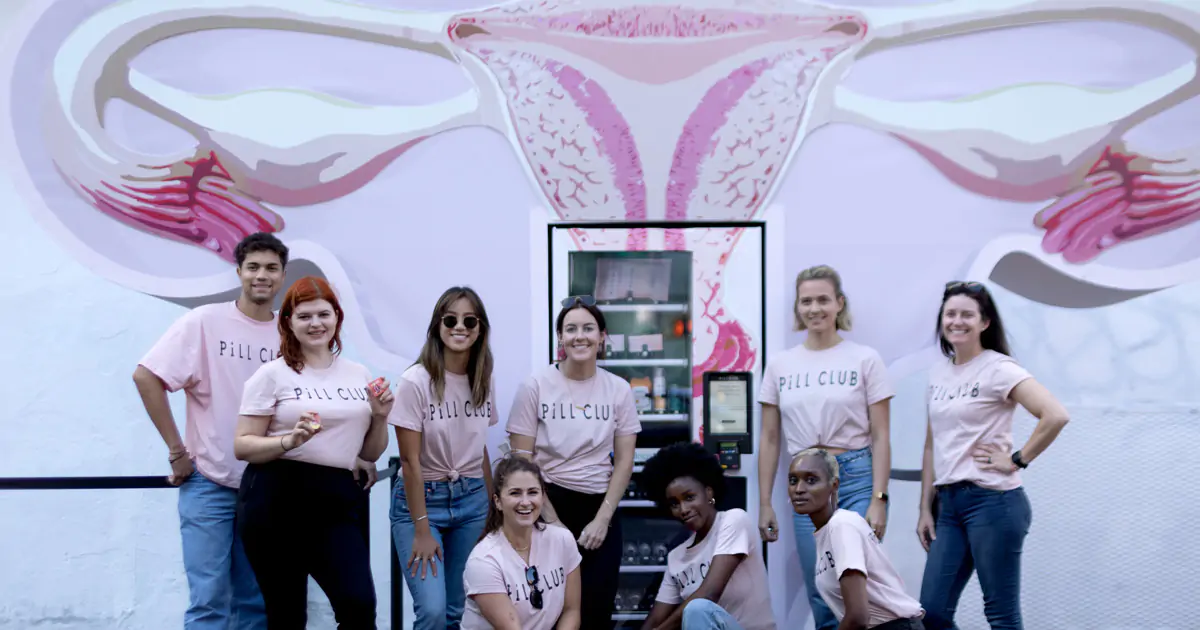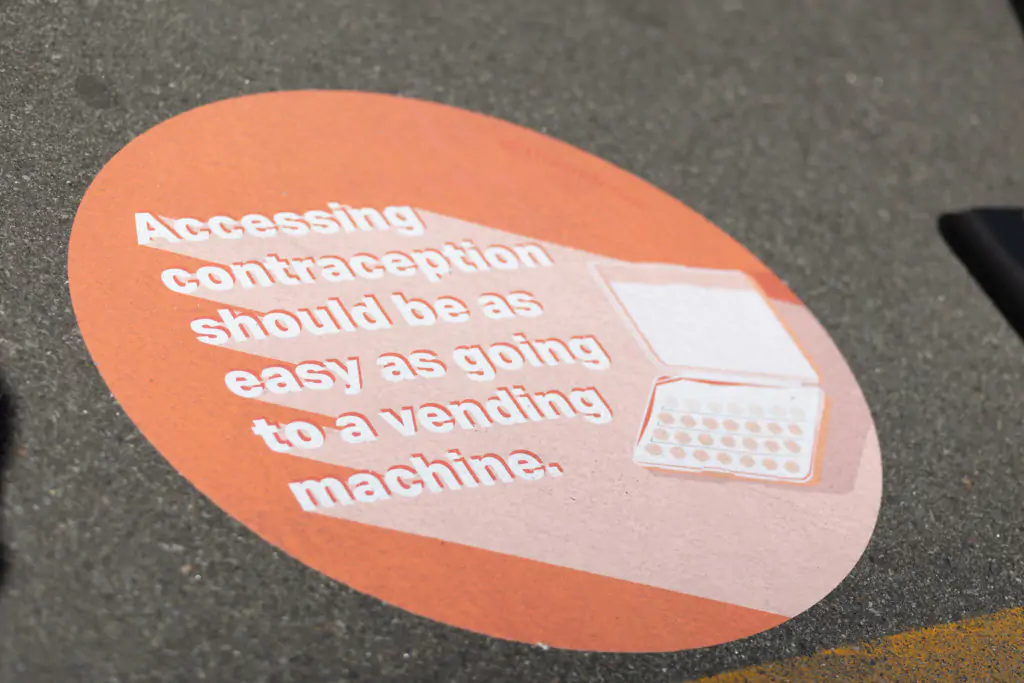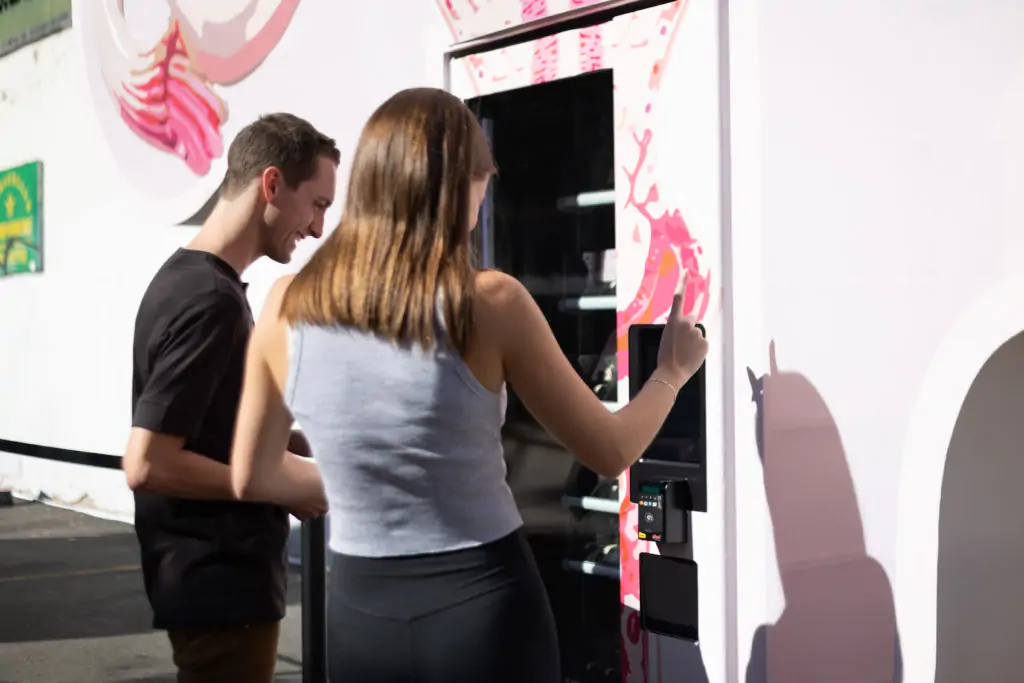
The direct-to-consumer sexual wellness brand’s latest activation centers on contraception access.
The global sexual wellness market is expected to reach $41.6 billion by the year 2027. Yet social stigma, particularly when it comes to healthcare that doesn’t apply directly to cisgender men, remains a major hurdle for access to things like birth control. According to The Pill Club, getting contraception should be as easy as visiting a vending machine.
To open up conversations around contraceptive health, The Pill Club, the direct-to-consumer wellness brand, celebrated World Contraception Day 2021 by placing a vending machine stocked with many of the brand’s own healthcare products on Sept. 26 at the corner of Houston and Lafayette in New York. Intended to symbolize the modern convenience that The Pill Club is pushing for with its products, the vending machine was adorned with images of uteruses.
“By taking a provocative and visual approach to an integral part of women’s health—in this case, contraception—we’re trying to shift the narrative and normalize women’s healthcare,” said Liz Meyerdirk, CEO of The Pill Club, in a quote to Adweek.

Accessibility in contraception
For Meyerdirk, it often boils down to being a case of accessibility. “If you look across the United States alone, over 19 million women live in contraception deserts, meaning they cannot readily access affordable contraception. This is a staggering statistic, and is one of the many motivations behind what we do at The Pill Club.”
The vending machine was stocked with a variety of The Pill Club’s products, some never seen before, including condoms, lubricants, tampons and pads, wipes and wash, post-sex care and clean-up and even vitamins. Special World Contraception Day stickers were available for anyone who stopped by. New Yorkers were invited to take photos and visit the vending machine to purchase its many offerings.
The question of access makes OOH events like this particularly meaningful, according to the company. “Women should be able to decide if and when they have children no matter where they live, and education around access, or lack thereof, is an important step towards driving change for women everywhere,” Meyerdirk concluded.

